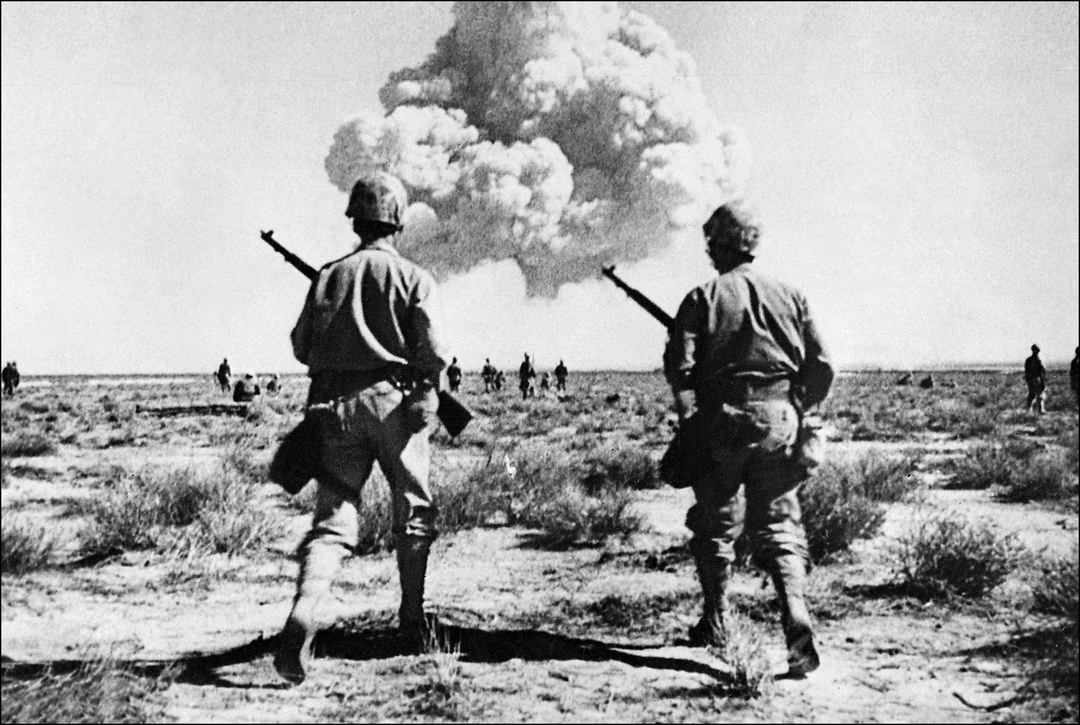The 20th century was humanity’s deadliest, killing almost 200 million people in conflict. After two wretched world wars that saw two atomic bombs dropped on Hiroshima and Nagasaki, we all hoped that humanity would never again fall into the deadly trap of war.
The strong role of the UN and the end of the Cold War in the early 1990s finally added some substance to that hope, but our world, unfortunately, descended yet again into conflict.
Instead of promoting stability and supporting the ex-Soviet bloc with a new Marshall Plan, the West chose to shore up its alliances by subsuming former Warsaw Pact countries into NATO, creating a Western Goliath to stare down a Russian David. Confrontation and suspicion won over love and magnanimity, and I believe it is not too hard to follow the line that has led us to where we are today.
Nuclear arsenals with the potential to destroy all life on Earth many times over are expanding again. It is becoming ever easier for countries to buy nuclear technology and weaponry from others whose interest is simply money, or sometimes chaos. We all know that, in the not-so-distant future, procuring atomic weapons or other weapons of mass destruction will be almost as easy as going to the supermarket. In that context, we can hardly afford to allow international relations to become about chest-thumping and scaring others into submission.
Despite our tremendous knowledge, the world is not any safer today. Corrosion of relations is occurring not only between superpowers and their expanding alliances but in democracy itself, with ever more dictatorial regimes seizing power. While social media is being gamed by algorithms and special interests, traditional media outlets cannot even claim to be independent anymore for they are almost all owned by conglomerates and special interests themselves. We are bombarded every day by partisan news, poisoning our societies and robbing many of us of our convictions.
The strength of love is that it forgives, forgets and seeks to mend. Mindless conflict, driven by ego and power, leaves deep scars that are difficult to heal.
In such a polarized world, it is increasingly hard to explain to people that peace and stability are neither served by an ever-growing NATO and a West disciplining others, nor by Russia invading and annexing the territories of another sovereign nation. In the Middle East, we have come to recognize such dead-end roads, and we are trying to forge a new path of peace. There is still a long way to go, and we realize there is no magical solution to instantly mend countries split by conflict, like Libya, Sudan and Yemen. Importantly, though, we recognize that it is our duty to try.
What the world needs today is not more weapons, but rather the kind of spirit shown in response to the severe famine in Ethiopia in the mid-1980s, when we came together as one, drawing on shared humanity and love. This spirit allows us to overcome even the most difficult situations, and we must reclaim it in order to become masters of our own destinies again.
The strength of love is that it forgives, forgets and seeks to mend. Mindless conflict, driven by ego and power, leaves deep scars that are difficult to heal. If we all pause and look honestly at where our best interests lie, we will recognize that they are served by love, not by conflict. The same emotions that keep us close in our individual lives are also valid between peoples and nations. We cannot allow ourselves to be segregated from the basic human force that is love; we must rediscover those emotions and live by them in every aspect of our lives.
• Hassan bin Youssef Yassin worked with Saudi petroleum ministers Abdullah Tariki and Ahmed Zaki Yamani from 1959 to 1967. He led the Saudi Information Office in Washington from 1972 to 1981 and served with the Arab League observer delegation to the UN from 1981 to 1983.


 The world needs more love, not war
The world needs more love, not war 








